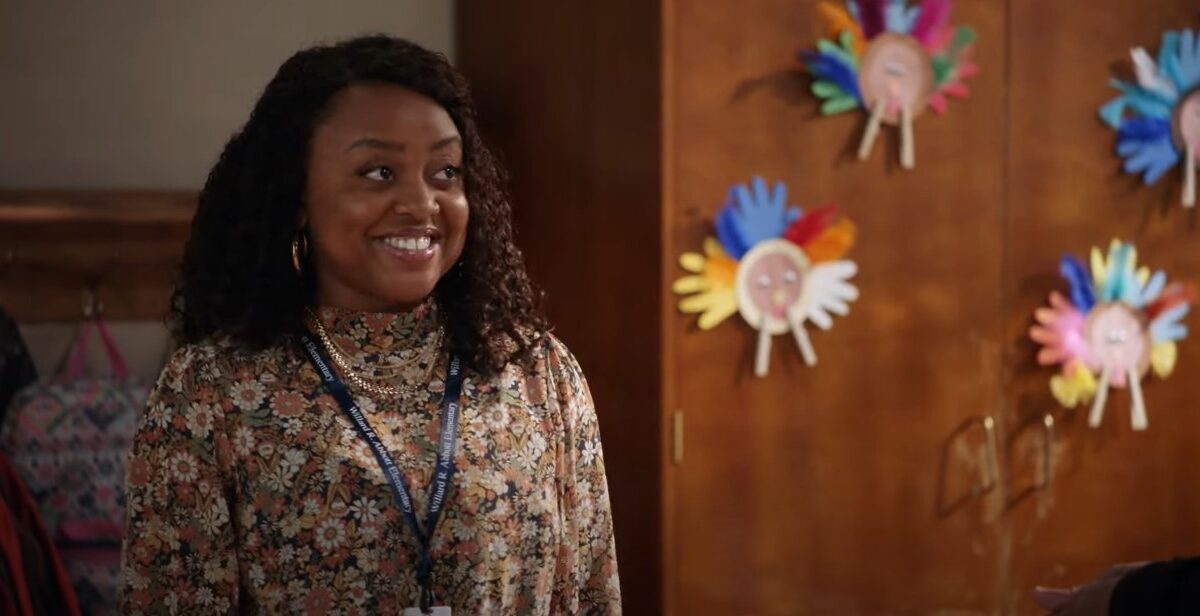After meandering for so many episodes in its second season, the teacher-based sitcom “Abbott Elementary” has finally latched onto a compelling theme/storyline: the urban public school’s competition with the nearby charter school. In its seventh episode, “Attack Ad,” the teachers of Abbott Elementary are the victims of a commercial that casts them in a negative light. The ad portrays Abbott Elementary as an incompetent and corrupt school, contrasting with Legendary Charter Schools that can save its students.
Although the show clearly takes a side, it actually does a good job of encapsulating the argument between public educators and advocates of charter schools. On one side are public school teachers who face many challenges, especially in the inner cities, but nonetheless think they prevail and offer hope to poor children trying to make it into adulthood. They imagine themselves like Jaime Escalante in “Stand and Deliver,” who took innumerate thugs from the barrio of East L.A. and turned them into math whizzes who could pass the AP Calculus exam.
On the other side are the charter school proponents who, perhaps inspired by the popular documentary “Waiting for Superman,” cast public schools as squalid hellholes staffed with terrible teachers and corrupt administrators while they highlight the orderly, rigorous environments of the KIPP schools and Founders Classical Academies as what’s possible with charter schools.
For the most part, this dichotomy is largely misleading and not quite true, so there’s little point in determining which side is right. Rather, there’s more to be gained in seeing where these ideals go wrong so that true reform and clear thinking can happen.
In my experience as a public school teacher, I see more flaws in those who attempt to defend all public teachers from all criticism and call for unconditional trust from parents and ever more funding. They fail to recognize the major issues afflicting public education, namely the corrupt bureaucracy, disincentivized educators, and constant excuses.
It’s true that many campuses are in disrepair and that the teachers aren’t earning enough money, but this isn’t because districts are underfunded. Rather, they are bloated and mismanaged, devoting far too much money to programs, positions, and products that do nothing for students or their teachers. This means the real villain in “Abbott Elementary” shouldn’t be the charter school but the leadership of the School District of Philadelphia that leaves its schools in such conditions despite having the money (spending $25,089 per student last year).
The problems of bad leadership and mismanaged spending too often result in the hiring of lackluster teachers. Far from being energetic young teachers like Greg and Janine or experienced veterans like Melissa and Barbara, most teachers understandably take the worst of both types, being cynical and resigned before they do anything with their students. Apart from a few outliers, most teachers in urban public schools will do just enough to make it through the year without incidents. If they try too much, they will quickly experience burnout and likely run into conflicts with students and administrators. If they do too little, well, nothing much happens except a few possible complaints from a few parents. Either way, they earn the same salary at the end of the year.
With the advent of charter schools and a growing school choice movement, public school leadership insists that social and economic injustice is to be blamed for bad schools. As such, they invest more of their money into programs and campaigns meant to combat this supposed injustice instead of implementing a more rigorous curriculum and holding teachers and students accountable. The writers of “Abbott Elementary” have wisely steered clear of this issue (which isn’t really a laughing matter), though it’s a growing problem all the same.
However, acknowledging this doesn’t mean that all the charter schools have it figured out, nor are they the slick, well-funded institution depicted in “Abbott Elementary.” Most operate with far less funding than public schools and are thus at a disadvantage when it comes to attracting talented teachers and principals.
Some still manage to succeed, usually through a better curriculum and more thoughtful policies, along with a more motivated student body that wants to be there. Ironically, others have the same struggles as Abbott Elementary, with bad leadership like Principal Ava, undertrained teachers like Gregory, and paltry resources with which to keep the campus itself operational (basically the main conflict of half the show’s episodes).
Unlike at Abbott Elementary, though, the administrators and teachers at charter schools can’t simply laugh about it and just make it to the next episode. Turnover and general chaos are massive problems in inner-city schools (for an idea of how this looks, one can watch the fourth season of “The Wire,” which is often featured in teacher training programs due to its depressing accuracy). Of course, a true school-choice program that allocated funds indiscriminately and equally would greatly help in addressing this challenge.
Although it would be foolish to expect much realism, let alone workable solutions to complex problems, from an ABC sitcom, it’s important to understand that what “Abbott Elementary” depicts is really the way many people think about education: Public schools are cash-strapped, charter schools are a danger, and that the system as it stands is sustainable so long as people give public education the benefit of the doubt. This is not quite true, nor does it make for good satire; thus, season two isn’t nearly as funny as season one.
The sooner that all sides make it past the false images we see depicted on television, the better the conversation about reforming American K-12 education will go.









